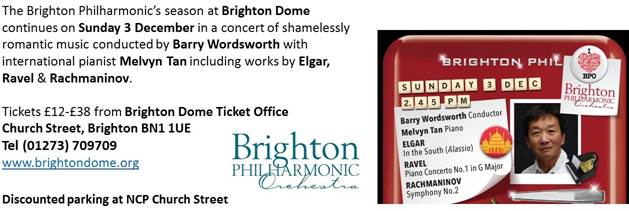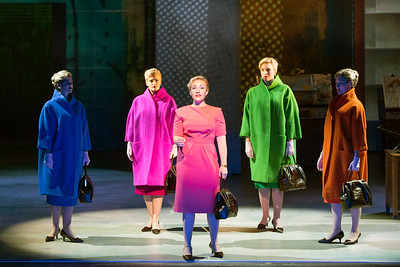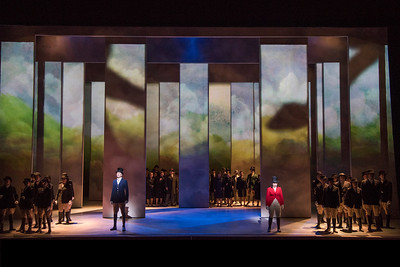The third concert of the Brighton Phil’s current season at Brighton Dome on Sunday 3 December takes us from the sun-drenched Italian Riviera to the jazz clubs of pre-war America courtesy of three great Romantic composers: Elgar, Ravel & Rachmaninov, in the company of Conductor Laureate Barry Wordsworth and the illustrious pianist Melvyn Tan.
Elgar’s concert overture In the South is a fabulous evocation of a family holiday in Alassio that perfectly captures the delights of an Italian town and the grandeur of the Italian coast.
Sumptuous and punchy, Ravel’s Piano Concerto in G Major is infused with the jazz-age glamour that he experienced on a concert tour of America and in the clubs of Paris – a heady juxtaposition of jazz syncopation and neo-classical elegance.
Barry Wordsworth, Conductor Laureate, Brighton Philharmonic Orchestra, says “The Ravel is one of my favourite piano concertos as it shows the genius of this great composer to perfection, and with a soloist we will be so proud to have with us again in Brighton. Three masterworks of the most contrasting mood and character will make up a wonderful afternoon of symphonic music.”
Epic in scale yet intimate in mood, Rachmaninov’s Second Symphony is surely one of the best loved in the repertoire. Its hauntingly beautiful central theme is one of the most exquisite by a composer noted for his luscious melodies, and ends this concert on a torrent of romantic ecstasy.
Tickets (from £12-£38) are available from Brighton Dome Ticket Office in Church Street, Brighton, (01273) 709709 and online: www.brightondome.org – 50% discount for students and Under 18s.
Discounted parking is available for BPO concert-goers at NCP Church Street – just £6 between 1-6pm.



